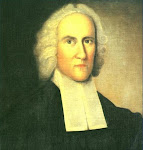In a recent edition of The Chicago Tribune (“Family Helps Adopted Haitian Children Keep Their Spiritual Heritage,” www.chicagotribune.com) I read of a family from one of the northern suburbs who in 2002 adopted two children from Haiti, a boy and a girl. Every night since the horrific Haitian earthquake four weeks ago, this couple has been leading their two children in voodoo prayers for the people of Haiti, invoking a spirit called Papa Legba. The couple believes that the ritual incantations help “preserve their children’s ties to Haiti through a religion they argue has been misinterpreted and unfairly portrayed.” With all due respect to this couple, who have done a wonderfully generous thing in opening their home and hearts to these children, if we study voodoo practices in depth at all, it really is hard to escape the conclusion they do not involve destructive contact with demonic spirits. The conclusions this husband and wife draw about voodoo arise from a common American presupposition that all cultural and religious practices are basically neutral. It is a function of political correctness that refuses to judge cultural practices as harmful or even evil. However, even New York Times columnist David Brooks admits that Haiti’s practice of voodoo makes economic progress in that island nation difficult, because voodoo “spreads the message that life is capricious and planning futile” (David Brooks, “The Underlying Tragedy,” www.nytimes.com). Our prayer is that for his glory, Almighty God will free the Haitian people from superstition and animistic religious practices to believe the gospel, so that they might know the truth, and the truth would set them free (John 8:32).
